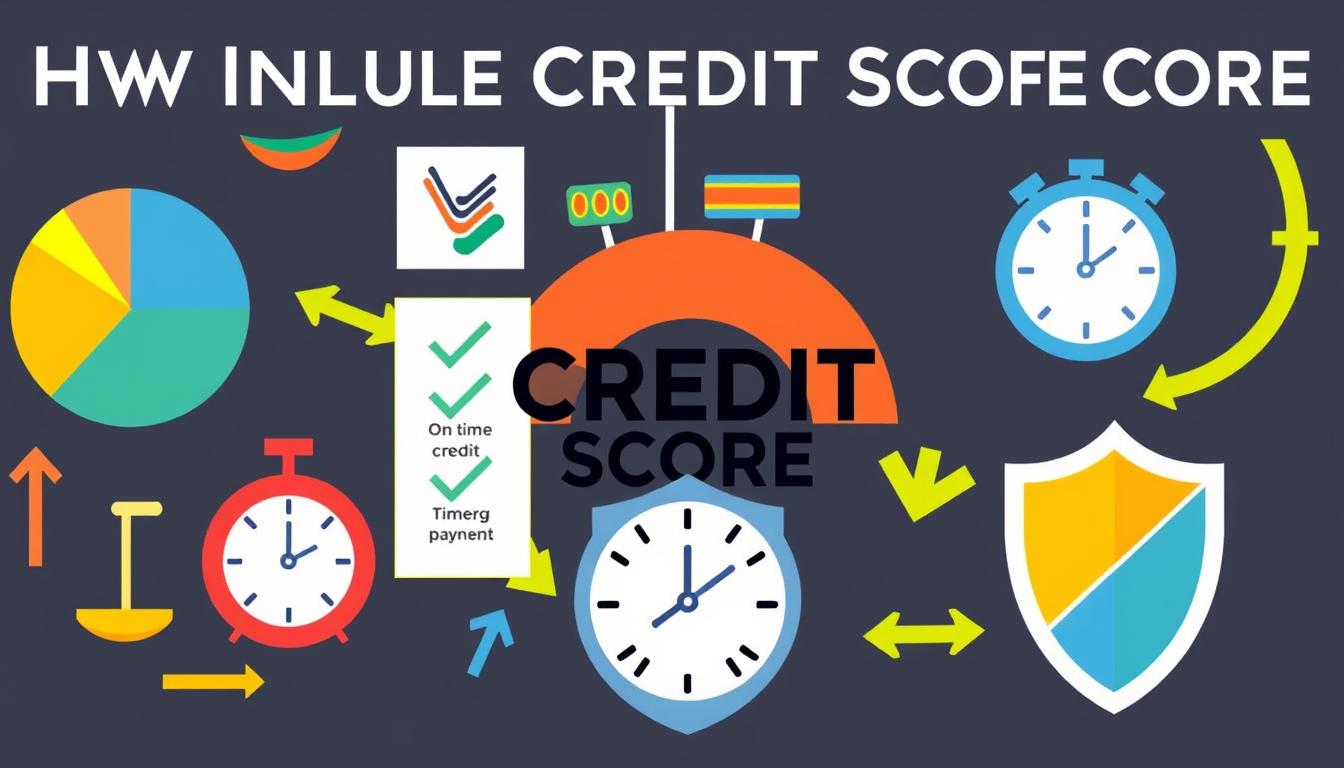Understanding your credit standing is vital for making smart financial decisions. The National Credit Review offers a thorough look at your credit history. It empowers you to take charge of your financial future.
Credit scores play a crucial role in your financial well-being. Credit reporting agencies shape your credit profile. Factors like payment history and credit use influence your creditworthiness.
A detailed credit review can provide many benefits. It helps you monitor and improve your credit. You’ll find resources to navigate the complexities of credit management.
Key Takeaways
- Understand the significance of credit scores and their impact on your financial well-being.
- Discover the role of credit reporting agencies and how they shape your credit profile.
- Learn about the factors that influence your credit score, such as payment history and credit utilization.
- Explore the advantages of a comprehensive credit assessment and how it can benefit you.
- Gain insights into credit monitoring, repair strategies, and resources for maintaining a healthy credit score.
What is a National Credit Review?
A national credit review examines your overall credit profile. It looks at your credit scores, history, and factors affecting creditworthiness. This analysis helps you understand your financial standing and improve your credit health.
Understanding the Importance of Credit Scores
Your credit score shows lenders how creditworthy you are. It’s based on payment history, credit use, and credit history length. A good score can lead to better loan terms and interest rates.
It can also open doors to improved financial opportunities. Lenders use this number to decide if they’ll lend to you.
The Role of Credit Reporting Agencies
Experian, Equifax, and TransUnion are the three major credit reporting agencies. They collect and maintain your credit information. These agencies use this data to create your credit reports and scores.
Checking your credit reports regularly is important. It helps you spot and fix any mistakes or issues.
“A national credit review provides a comprehensive snapshot of your financial health, empowering you to make informed decisions about your credit management.”
Knowing about credit scores and reporting agencies is key. It gives you insights into your financial health. This knowledge helps you take steps to keep your credit profile strong.
Factors That Influence Your Credit Score
Your credit score shows how healthy your finances are. Several key factors shape this score. Knowing these factors helps you manage your credit better and keep a strong profile.
Payment History: The Biggest Factor
Your payment history is the most important part of your credit score. It looks at whether you pay your credit card payments and loan payments on time. This makes up about 35% of your total credit score.
Your credit utilization ratio also matters a lot. This is how much credit you use compared to what’s available. Try to keep this ratio below 30% for a good credit profile.
Other factors affect your score too. These include your credit history length, types of credit accounts, and recent credit inquiries. They have a smaller impact on your overall score.
| Factor | Percentage of Credit Score |
|---|---|
| Payment History | 35% or more |
| Credit Utilization Ratio | 30% or less |
| Length of Credit History | 15% |
| Types of Credit Used | 10% |
| New Credit Inquiries | 10% |
Knowing these factors helps you take charge of your credit scores. You can make smart choices to keep your financial profile strong.

“Paying your bills on time is the single most important thing you can do to maintain a good credit score.”
Benefits of a Comprehensive Credit Assessment
A thorough national credit review offers many benefits for managing your financial health. It provides insights into your credit scores and credit history. This knowledge empowers you to make smart money choices.
A key advantage is spotting errors in your credit report. These mistakes can hurt your credit scores. Regular reviews help you find and fix these issues quickly.
- Uncover and correct errors in your credit report
- Gain a deeper understanding of the factors influencing your credit scores
- Develop personalized strategies for improving your credit history and credit monitoring
- Identify opportunities for credit repair and responsible credit management
A proactive national credit review opens doors to better finances. Understanding your credit scores and credit history helps you make smart choices. You can fix problems and boost your financial health.
| Benefit | Description |
|---|---|
| Enhanced Credit Scores | A comprehensive credit assessment can help you identify and address factors that are negatively impacting your credit scores, allowing you to take targeted actions to improve your financial standing. |
| Improved Credit Monitoring | Regular reviews of your credit report and credit history enable you to stay on top of your financial well-being, detect any suspicious activity, and proactively address any issues that may arise. |
| Informed Credit Repair Strategies | By understanding the specific factors affecting your credit scores, you can develop and implement effective credit repair strategies to improve your overall financial profile. |
A thorough national credit review is key to long-term financial success. It helps you understand credit scores, credit history, and credit monitoring. With this knowledge, you can build a brighter financial future.
National Credit Review: A Detailed Examination
A national credit review thoroughly examines your credit history. It checks for accuracy and identifies potential errors or disputes. This analysis is vital for maintaining a healthy credit profile and securing favorable financial opportunities.
Analyzing Your Credit History
The review begins by examining your credit history in detail. It scrutinizes listed accounts, payment patterns, and notable changes over time. This analysis provides valuable insights into factors influencing your credit score.
Identifying Potential Errors and Disputes
A key goal is to spot any errors in your credit history. Unresolved inaccuracies can harm your credit bureau disputes and overall creditworthiness. The process checks for incorrect account details, missed payments, and identity theft issues.
| Potential Credit History Issues | Impact on Credit Score |
|---|---|
| Inaccurate account details | Can negatively influence creditworthiness |
| Missed or late payments | Significantly impact payment history, a key factor in credit score calculation |
| Identity theft-related problems | Can lead to fraudulent accounts and damage credit profile |
Identifying these issues through a national credit review helps maintain a healthy credit history. It ensures your credit bureau disputes are resolved effectively. Taking action on these findings can improve your overall credit profile.
Credit Monitoring: Stay on Top of Your Credit
Keeping tabs on your credit reports and scores is vital for financial health. Regular checks help spot changes or issues quickly. This vigilance allows you to address problems and protect your creditworthiness.
Credit monitoring offers many advantages to keep you informed. It helps you stay in control of your credit history. Here are some key benefits of regular credit monitoring:
- Early detection of errors or fraudulent activities: Closely monitoring your credit reports helps spot inaccuracies or unauthorized entries. This allows you to dispute them and prevent damage to your credit scores.
- Tracking changes in your credit history: Regular checks keep you updated on your credit profile changes. These include new accounts, credit limit increases, or payment updates.
- Proactive credit management: Monitoring your credit helps you make smart financial choices. You’ll know when to apply for new credit or adjust your credit use.
Keeping an eye on your credit is a wise financial habit. It helps maintain a strong credit profile and avoid problems. Regular reviews of your credit reports and credit scores are crucial.
These checks allow you to take action to protect your finances. They also ensure your credit history reflects your true creditworthiness.
“Regularly monitoring your credit is like keeping a vigilant eye on your financial health – it empowers you to identify and address any issues before they escalate.”
Credit Repair Strategies
Fixing your credit score can be tough. But with the right methods, you can improve your financial health. Let’s explore effective ways to repair your credit.
Dealing with Negative Items
Start by addressing negative items on your credit history. Review your credit report and spot inaccurate or unproven negative entries. Then, dispute these items with credit bureaus to remove or correct them.
Collect documents to back up your claims. File disputes directly with credit bureaus and follow up regularly. If needed, consider hiring a credit repair specialist.
- Gather documentation to support your dispute claims
- Submit disputes directly to the credit bureaus and follow up diligently
- Consider enlisting the help of a credit repair specialist, if needed
Rebuilding Your Credit Score
After fixing negative items, focus on rebuilding your credit scores. This involves good credit habits, managing debt, and strategic credit-building activities.
- Reduce your credit card debt by making timely payments and keeping your credit utilization low
- Become an authorized user on someone else’s credit card with a long, positive history
- Apply for a secured credit card and use it responsibly to establish a new credit account
- Regularly monitor your credit history and continue to dispute any inaccuracies
These strategies can help improve your credit scores over time. Credit repair takes patience and effort. Stay committed, and you’ll achieve better credit health.

Credit Counseling: A Helpful Resource
Credit counseling aids those facing financial troubles. It offers guidance to manage credit card debt and boost your credit utilization ratio. These services help you create a plan for financial stability.
Credit counseling agencies offer various services, including:
- Budgeting assistance
- Debt management plans
- Negotiation with creditors
- Educational resources on personal finance
A credit counselor can help you understand your finances better. They’ll explore options to tackle your credit card debt. Together, you can create a realistic repayment plan.
Counselors can negotiate with creditors on your behalf. This may lead to lower interest rates and fees. Such changes can make paying off balances easier.
Credit counseling isn’t for everyone, but it can be a valuable tool. It’s ideal for those struggling with debt. Working with a reputable agency can kickstart your journey to financial health.
Managing Credit Card Debt
Credit card debt can greatly affect your credit scores. Lenders look at your credit utilization ratio when checking your creditworthiness. This ratio compares the credit you’re using to your total available credit.
Understanding Credit Utilization Ratio
Your credit utilization ratio is your current credit use divided by your total credit limit. For instance, if you have $10,000 credit and a $3,000 balance, your ratio is 30%.
Experts suggest keeping your credit utilization ratio under 30% for a good credit score. High credit card debt and ratio can hurt your credit scores. This makes getting loans or credit cards harder.
| Credit Utilization Ratio | Impact on Credit Scores |
|---|---|
| Below 30% | Positive impact on credit scores |
| Above 30% | Negative impact on credit scores |
To manage your credit card debt and keep a healthy ratio, try these tips:
- Prioritize paying down high-interest credit card debt first.
- Request credit limit increases to lower your credit utilization ratio.
- Avoid taking on new credit card debt while paying down existing balances.
- Monitor your credit reports and credit scores regularly to identify and address any issues.

Understanding your credit utilization ratio helps control credit card debt. This maintains a healthy credit score, vital for good financial terms later.
Disputing Errors with Credit Bureaus
Mistakes in your credit history can harm your credit scores. You can challenge any errors with Experian, Equifax, and TransUnion. These are the major credit bureau disputes agencies.
The Process of Filing Disputes
Fixing credit history issues is simple. Follow these steps to dispute errors with credit bureaus:
- Check your credit report for any mistakes.
- Collect proof, like receipts or statements, to back up your claim.
- Contact the credit bureau online, by mail, or phone to start a dispute.
- Explain the error in detail and send your evidence.
- Keep track of your dispute and follow up if needed.
- If unresolved, report to the Federal Trade Commission or consider legal action.
Handling credit bureau disputes quickly helps keep your credit score healthy. It ensures your credit history shows your true financial picture.
Tips for Maintaining a Healthy Credit Score
A strong credit score is vital for your money matters. Simple habits can keep your credit history top-notch and your credit scores high. Let’s explore some helpful tips.
- Pay Your Bills on Time: Payment history is the most significant factor in determining your credit scores. Make sure to pay all your bills, including credit card payments, loans, and utilities, on or before the due date.
- Keep Credit Card Balances Low: Your credit utilization ratio, which is the amount of credit you’re using compared to your total available credit, is another crucial factor. Aim to keep your balances below 30% of your credit limit to maintain a healthy credit score.
- Monitor Your Credit Report Regularly: Regularly reviewing your credit report can help you identify and address any errors or discrepancies. Consider signing up for a credit monitoring service to stay informed about changes to your credit history.
- Address Disputes Promptly: If you notice any inaccuracies on your credit report, take action immediately. Follow the correct procedures to dispute these errors with the credit bureaus to ensure your credit score accurately reflects your financial standing.
- Limit New Credit Applications: Each time you apply for new credit, it can result in a hard inquiry on your credit report, which may temporarily lower your credit score. Try to limit the number of credit applications you submit to maintain a healthy credit score.
These tips will help keep your credit scores in great shape. A strong credit history offers many perks. Remember, good credit score upkeep is ongoing.
With the right moves, you can build a bright financial future. Stay focused and watch your credit health improve over time.

Conclusion
A national credit review is a powerful tool for improving your financial standing. It analyzes your credit scores, history, and factors influencing creditworthiness. This helps you identify areas for improvement and develop strategies to enhance your credit profile.
This article has provided insights to take control of your financial future. You can address credit card debt, dispute errors, or seek credit counseling. Stay vigilant with credit monitoring and use national credit review services.
Your credit score is crucial for securing favorable loan and mortgage terms. Prioritizing credit maintenance and optimization invests in your long-term financial well-being. It also unlocks new opportunities for personal and professional growth.

